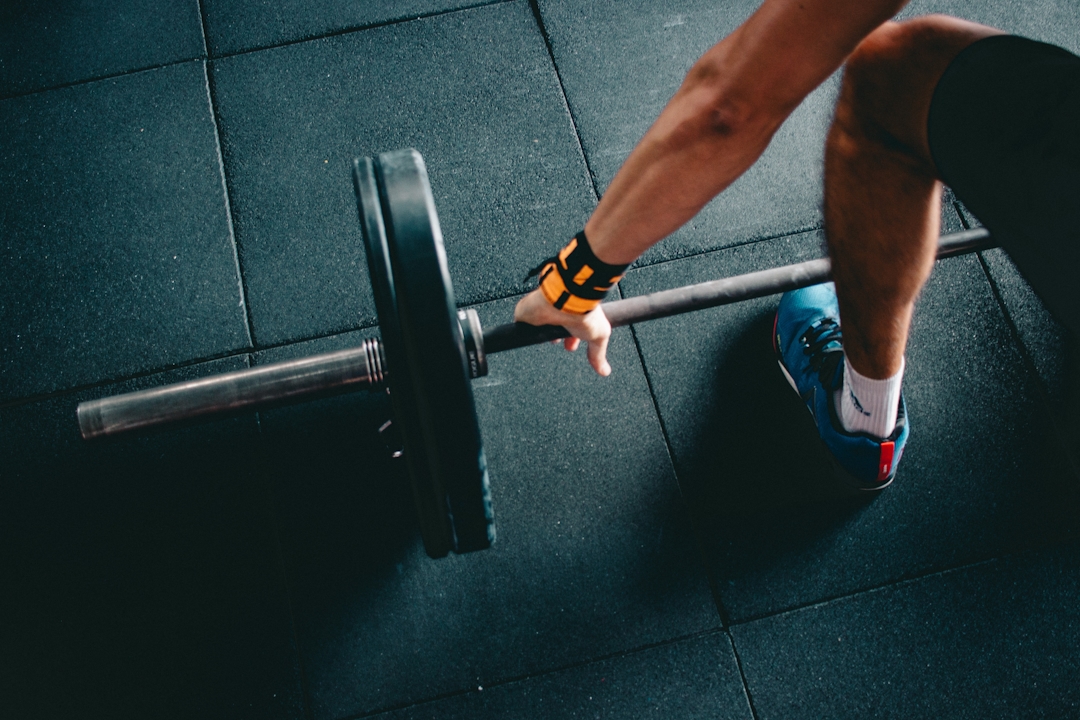
Revitalize Your Fitness: Essential Nutrition Tips for Consistent Energy Boosts
Discover key nutrition tips to keep your energy levels high and enhance your fitness journey effortlessly.

Audio Summary
Key Takeaways
- Balance macronutrients for sustained energy
- Eat regularly and stay hydrated
- Optimize pre and post-workout nutrition
- Incorporate energy-boosting foods into your diet
- Maintain healthy habits like exercise and quality sleep
Introduction
Maintaining optimal energy levels is key for an active lifestyle and fitness goals. Whether you're a seasoned athlete or just starting your wellness journey, good nutrition is vital for sustaining energy and motivation. Many people struggle with fatigue, which can hurt workout performance and overall well-being. But by using smart nutritional strategies, you can revitalize your fitness routine and boost your energy throughout the day.
This article explores important nutrition tips to optimize your energy levels, improve workout performance, and support long-term fitness goals. By focusing on the right fuel for your body, you'll be better prepared to tackle fitness challenges and keep up the stamina needed for an active, healthy lifestyle. Learn how to nourish your body effectively, balance your nutrients, and include energy-boosting foods to power through workouts and daily activities with vigor.

Mastering Balanced Nutrition: Fueling Your Energy and Wellness Journey
Balanced nutrition is key to keeping your energy up throughout your wellness journey. To maintain steady energy levels, focus on the right mix of carbs, proteins, and fats. Carbs are your body's main fuel source, so include whole grains, fruits, and veggies in your meals. These complex carbs give you a steady energy release, helping you avoid sudden crashes. Proteins are crucial for muscle repair and growth, so add lean meats, fish, or plant-based options like beans and lentils to your diet. Don't forget healthy fats from foods like avocados, nuts, and olive oil, which help with hormone production and nutrient absorption.
When you eat is just as important as what you eat. Eat regularly throughout the day to keep your blood sugar stable and prevent energy dips. Try to have a balanced meal or snack every 3-4 hours. This approach keeps your body fueled consistently, supporting both daily activities and workouts. Remember, portion size matters – eating too much can make you feel sluggish, while not eating enough can leave you feeling drained.
Staying hydrated is also crucial for keeping your energy up. Even mild dehydration can cause tiredness and decrease your exercise performance. Drink water regularly throughout the day, not just during workouts. If you find plain water boring, try adding fruits or herbs for flavor. By focusing on balanced nutrition, eating at the right times, and staying hydrated, you'll build a strong foundation for sustained energy to power through your fitness routine and daily life.

Optimal Pre- and Post-Workout Nutrition: Fuel Your Fitness and Recovery
Fueling your body right before and after workouts is key for keeping your energy up and helping you recover. Before your workout, eat a meal with easy-to-digest carbs about 2-3 hours before exercising. Try a bowl of oatmeal with fruit or whole-grain toast with a banana. If you're short on time, a small snack like a granola bar or fruit 30 minutes before your workout can give you a quick energy boost.
Right after your workout, focus on eating both carbs and protein. This combo restores your energy and helps your muscles recover. Try to eat within 30-60 minutes of finishing your exercise. Good options include a smoothie made with fruit and Greek yogurt, or a turkey sandwich on whole-grain bread. The protein helps repair your muscles, while the carbs refill your energy stores.
Staying hydrated is crucial before and after your workout. Drink water before, during, and after exercising to keep yourself properly hydrated. For longer or intense workouts, you might want to try a sports drink to replace the electrolytes you lose through sweat. Keep in mind that everyone's nutritional needs are different, so pay attention to how your body responds to different fueling strategies. Try various options to find what works best for you, and remember that being consistent is key to maintaining high energy levels for your fitness routine.

Fuel Your Vitality: Top Foods and Habits to Boost Your Energy and Fitness
Adding energy-boosting foods to your diet can improve your vitality and fitness performance. Nutrient-rich options like berries, leafy greens, and nuts are full of vitamins, minerals, and antioxidants that help keep your energy up all day. Bananas give you a quick dose of natural sugars and potassium, making them great for a pre-workout snack. Eggs are another superstar food, packed with protein and B vitamins that help produce energy.
Besides food choices, certain habits can boost your energy levels. Regular exercise, while it takes effort at first, increases your overall energy by improving heart health and releasing feel-good hormones. Getting enough quality sleep is crucial; aim for 7-9 hours of solid rest each night to let your body fully recover and recharge. Managing stress through methods like meditation or deep breathing can prevent energy drain.
Staying hydrated is a simple but often forgotten habit that greatly affects energy levels. Even being slightly dehydrated can make you feel tired, so drink water regularly throughout the day. Also, cutting back on caffeine, especially in the afternoon and evening, can improve your sleep quality and help you manage your energy better. By combining these energy-boosting foods with good habits, you'll create a powerful effect that enhances your overall vitality and supports your fitness goals.

Conclusion
To wrap up, boosting your fitness journey with good nutrition is key for keeping your energy levels steady. Focus on balanced eating with a mix of carbs, proteins, and healthy fats to create a strong base for lasting energy all day. It's crucial to fuel up right before and after workouts to maximize your performance and help your body recover. Eat easy-to-digest carbs before exercise and a combo of carbs and protein after.
Adding energy-boosting foods like berries, leafy greens, and eggs to your diet, along with good habits like regular exercise, quality sleep, and managing stress, can further improve your overall vitality. By using these nutrition tips and lifestyle practices, you'll be ready to tackle your fitness goals with renewed energy and enthusiasm, leading to a more active and healthier life.
Remember, being consistent is crucial for maintaining optimal energy levels. Make these nutritional strategies a regular part of your wellness routine for long-term success in your fitness journey. With these tools, you'll be well-equipped to keep your energy up and reach your health and fitness goals.
Reference
- '9 tips to boost your energy — naturally' by Harvard Health Publishing, reviewed by Howard E. LeWine, MD. https://www.health.harvard.edu/healthbeat/9-tips-to-boost-your-energy-naturally
- 'Food as Fuel Before, During and After Workouts' by American Heart Association. https://www.heart.org/en/healthy-living/healthy-eating/eat-smart/nutrition-basics/food-as-fuel-before-during-and-after-workouts
- '12 Energy Boosting Foods to Power Your Day and Workouts' by Peloton, featuring Carrie Gabriel, RDN, and Desiree Nielsen, RD. https://www.onepeloton.com/blog/foods-for-energy/
- '7 Supplements and Snacks for an Energy Boost' by Muscle & Fitness. https://www.muscleandfitness.com/flexonline/flex-supplements/7-supplements-and-snacks-energy-boost/
- 'The 28 best energy-boosting foods and drinks' by Medical News Today. https://www.medicalnewstoday.com/articles/323947

Related Blog Content

Maximize Your Workout: Key Nutrition Strategies for Enhanced Energy and Performance
Discover nutrition strategies to boost your energy and performance, ensuring you get the most out of every workout.
Read More
How can I improve my energy levels?
Discover natural ways to boost energy levels through diet, exercise, and lifestyle changes. Learn strategies to enhance overall vitality.
Read More
Top 10 Foods to Enhance Sports Performance and Nutrition: Fuel Your Active Lifestyle
Discover the top 10 foods that boost sports performance and nutrition, helping you fuel your active lifestyle effectively.
Read MoreReady to optimize your biology?
Nutritionaly is free to start. Build better habits, unlock insights, and watch your Bio-Score rise.